Educational offer
The academic staff of the EM4E research group teaches courses in the School of Engineering of the University of Padova that focus on different disciplines in the field of Electrical Engineering.
M.Sc. degree programme
COMPUTER ASSISTED ELECTROMAGNETIC DESIGN This course aims at presenting and applying to practical cases the main numerical methods for solving electromagnetic and multiphysics problems. At the end of the course the student will be able to model electromagnetic devices, either by commercial CAE software or by in-house MATLAB software.
COMPUTATIONAL ELECTRICAL ENGINEERING Students will learn the most suitable formulations of electromagnetic and circuit models for implementation inside numerical simulation codes. Furthermore, students will develop a feeling for typical problems of such numerical approaches and for the required hardware platforms and software tools. Students will get acquainted with the general structure of commercial simulation tools and will acquire skills for the development of original codes.
INDUSTRIAL ELECTROMAGNETIC COMPATIBILITY The teaching aims at introducing students to the analytical models and practical aspects of electromagnetic compatibility (EMC). In particular, the student will learn methods for studying EMC phenomena, such as conducted and radiated emissions, and the fundamental aspects of electromagnetic and circuit analysis of low and high frequency devices from an EMC point of view.
ELECTROHEAT SCIENCE FOR MATERIALS TECHNOLOGIES AND CHEMICAL PROCESSES The course aims to provide an in-depth exploration of electrothermal technologies and processes based on the use of electromagnetic fields for the development of innovative processes and advanced materials. Particular attention will be given to technologies with internal heat sources, although conventional methodologies will also be covered. The topics addressed will include resistance furnaces, infrared heating, induction heating, capacitive radio-frequency heating, and microwave heating.
ELECTROHEAT TECHNOLOGIES FOR SUSTAINABILITY The course aims to provide basic knowledge on different types of electrothermal technologies, focusing in particular on induction heating to allow students to develop skills for an optimal design of equipments for industrial or domestic applications.
PIEZOELECTRIC DEVICES The aim of this course is to introduce students to the principles and applications of piezoelectric devices. The program covers the linear behavior of piezoelectric materials, the essential properties of ferroelectric materials, and the basic operation of piezoelectric motors. Attention will also be given to the use of piezoelectric actuators and motors in practical applications, providing students with both theoretical foundations and an appreciation of their technological potential.
PHOTOVOLTAIC SCIENCE AND TECHNOLOGY The course provides the fundamental knowledge of semiconductor physics necessary to understand the operation of photovoltaic devices and explores the main technologies used in the construction of different types of photovoltaic cells and modules. It offers an in-depth overview of the production chain of crystalline silicon cells and modules, from mono- and polysilicon to the final device, as well as the manufacturing processes of thin-film modules such as a-Si, CdTe, CIS, and CIGS. Students will also gain the ability to design photovoltaic systems and will become familiar with Italian legislation regarding photovoltaic incentives.
AUTOMOTIVE AND DOMOTICS The course addresses sensor principles, electronic interfacing, energy management systems, and real-time microcontroller applications. It covers communication in automotive and home automation, lighting technologies, and sensors for autonomous driving, while providing skills in system design, analysis, and evaluation.
B.Sc. degree programme
CIRCUIT THEORY The main goal of the course is to provide skills for analyzing DC/AC electric circuits. Basic models of two-terminal elements togheter with Kirchhoff’s laws are examined first. Main analysis methods for DC/AC linear circuits and related examples of application are outlined in detail. Multi-terminal components and some simple transient circuits (R-L, R-C, R-L-C) are finally considered.
ENVIRONMENTAL ELECTRICAL ENGINEERING This course aims at providing skills in the field of electrical technologies for energy transition. The main analysis methods for DC/AC networks and working principles of electrical machinery and installations are outlined. The course focuses also on smart grids, renewable energy systems, and electric mobility.
